BRANDON WHEAT KINGS ALUMNI: Glen Lawson did it all for Wheat Kings
Advertisement
Read this article for free:
or
Already have an account? Log in here »
We need your support!
Local journalism needs your support!
As we navigate through unprecedented times, our journalists are working harder than ever to bring you the latest local updates to keep you safe and informed.
Now, more than ever, we need your support.
Starting at $15.99 plus taxes every four weeks you can access your Brandon Sun online and full access to all content as it appears on our website.
Subscribe Nowor call circulation directly at (204) 727-0527.
Your pledge helps to ensure we provide the news that matters most to your community!
To continue reading, please subscribe:
Add Brandon Sun access to your Free Press subscription for only an additional
$1 for the first 4 weeks*
*Your next subscription payment will increase by $1.00 and you will be charged $20.00 plus GST for four weeks. After four weeks, your payment will increase to $24.00 plus GST every four weeks.
Read unlimited articles for free today:
or
Already have an account? Log in here »
Hey there, time traveller!
This article was published 23/03/2024 (686 days ago), so information in it may no longer be current.
Not many people have had as enduring an impact on the Brandon Wheat Kings as Glen Lawson.
The 88-year-old Brandonite was inducted into the team’s Hall of Fame at their annual Black and Gold Gala last week along with Bill Fairbairn after a wide-ranging association, which included roles as a player, three-time coach, manager, director, part owner and league governor.
“I couldn’t think of anything better than to have that done, and particularly with Billy Fairbairn,” Lawson said of the honour. “Billy was never a rah-rah-rah guy in the dressing room but he laid it all out on the ice. He was one of the best we had in my time.
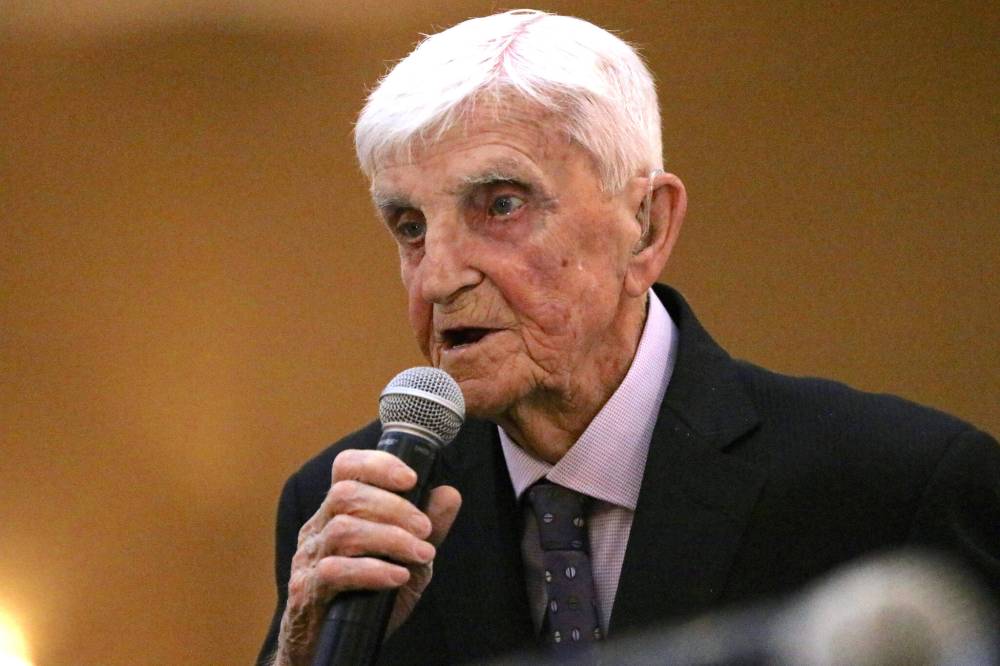
“He did what he was told and worked hard at it. He knew where every corner in the rink was. He was a digger.”
Lawson’s jack-of-all-trades career began in Brandon, where he was born and raised. He grew up in a family of 11 children, with seven sisters and three brothers.
“I never had a new pair of skates until I was with the Wheat Kings,” Lawson said. “It was all hand-me-downs, sometimes it was girls’ skates and an older brother’s skates.”
The Wheat Kings joined the Manitoba Junior Hockey League in the 1930s, and even then, the team became an aspirational target for the city’s youngsters.
“It was a dream to them and a stepping stone and something to shoot for,” Lawson said of kids at the time. “In my case, I used to play shinny hockey on the old South End Community Centre. When I talk about shinny, there were men there, 12 or 15 people, all scrambling for one puck. You got your knots trying to skate around and get at it.”
At the time, Brandon was still playing out of the old Wheat City Arena, which was built in 1913 on the block at 10th Street and Victoria Avenue that now houses the Brandon Police Service.
Stories abound from that era of youngsters finding a way into the old building without buying a ticket so they could hang out and watch the action.
“There were about three or four of my buddies from the south end, we all seemed to sneak in somewhere and get a half-decent seat,” Lawson said.
Lawson’s older brother Gord blazed the trail to the Wheat Kings in the early 1950s, and Glen quickly followed.
In his rookie season as an undersized, 18-year-old defenceman in 1953-54, Glen had two goals, four assists and 22 penalty minutes in 35 games. He added three points in 10 playoff games as third-place Brandon fell in the MJHL final to the first-place St. Boniface Canadiens.
After his first year, he headed to pro camp with the Detroit Red Wings along with Pat Kelleher and Bobby Harper. Lawson’s son Jeff said his family was told about a memory from that experience which puts everything into context.
“He said I was sitting beside Gordie Howe getting ready for camp, and here I am, a 5-10, 130-pound defenceman, and Gordie Howe is this great big 180-pounder and all muscles,” Jeff said. “He said it was quite different.”
Unfortunately for the teenager, he came of age in one of the oddest eras in Wheat Kings history.
After the 1953-54 season, the Wheat Kings took a leave from the Manitoba Junior Hockey League — they replaced the existing Brandon Elks and played out of the Big Six Intermediate Hockey League instead — and didn’t return to junior hockey and the MJHL until the 1958-59 campaign.
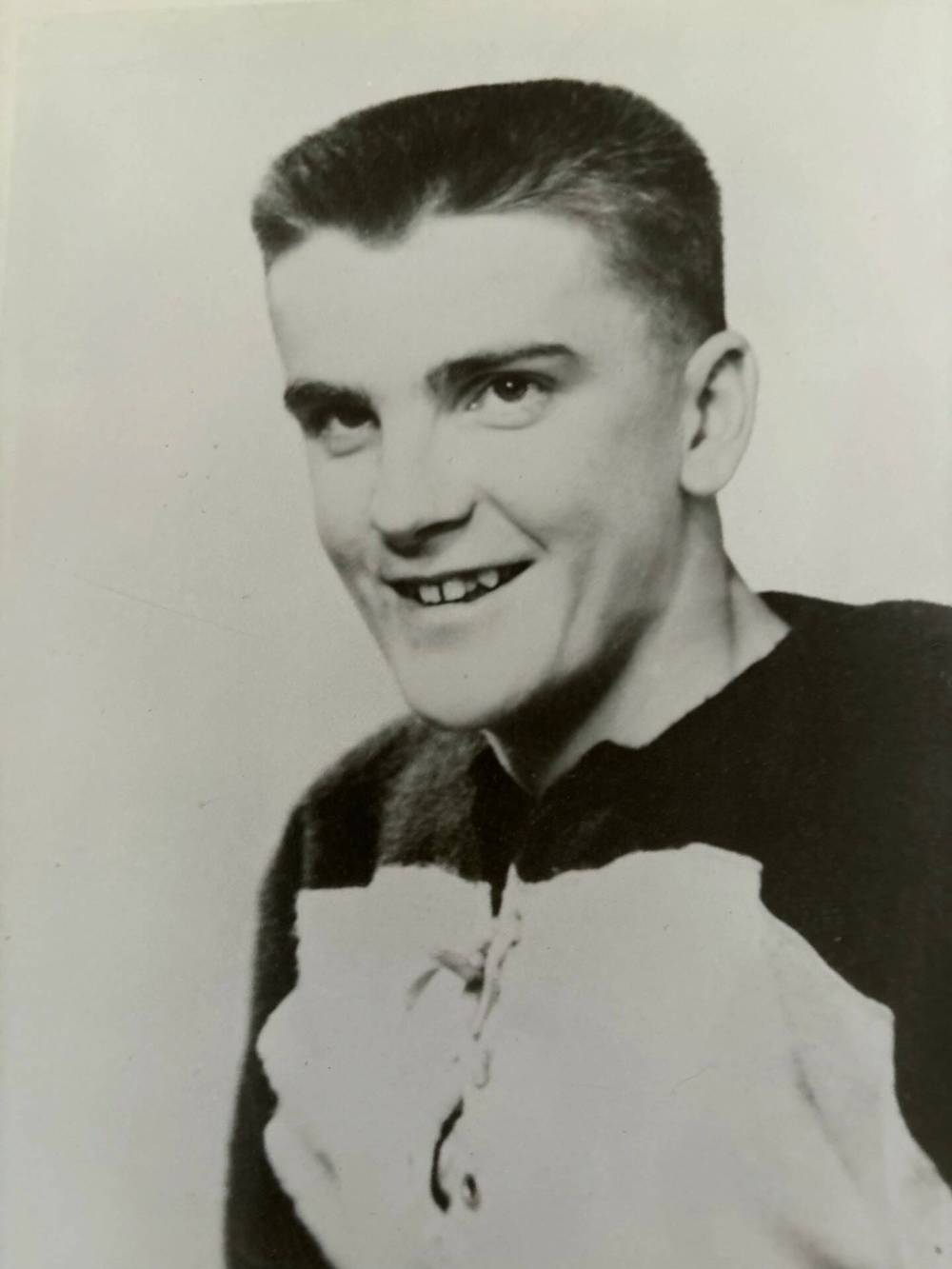
As a result, Lawson and a couple of his junior-aged teammates ended up heading east to join the Fort William Hurricanes of the old Thunder Bay Junior A Hockey League.
After a year there, he returned to the intermediate Wheat Kings for the 1955-56 and 1956-57 seasons before the Big Six league folded.
At the same time, Lawson’s older and much bigger brother Gord continued to play for the club, and was a talented player who Glen thinks could have turned pro. But on Feb. 23, 1955 at Wheat City Arena in Game 1 of the Big Six league final against the Killarney Shamrocks, an on-ice accident ended Gord’s career.
“He played hard hockey,” Lawson said. “He made a check at the blue-line and a stick splintered and he lost an eye.”
Even when he was still playing, Glen took up coaching, starting with the juvenile team in the Big Six League in 1956-57. They quickly won a pair of provincial juvenile A championships.
“I felt comfortable with that age group rather than the little gaffers, and just went on from there,” Lawson said.
As it turned out, Lawson’s graduation from the Wheat Kings as a player certainly didn’t signal the end of his time with the club.
During the 1958-59 season, general manager and head coach Jake Milford wanted to give up the coaching part of the job, and Lawson was hired on Dec. 14, 1958 due to his success with the juveniles. Seven of his former players made the jump that season to the Wheat Kings.
“I couldn’t do justice to both jobs,” Milford told The Brandon Sun at the time. “If we are looking to the future — and we certainly are — I’ll have to beat the bushes to turn up some talent and lend a hand to minor hockey here in Brandon.
“We have a real good club right now, one that has a good chance to win the Manitoba title. Glen should be the fellow who can do it. He has a fine record at coaching, and in talking to him, I know he has a sound knowledge of the game.”
Milford added he would still be at games, noting two head coaches is better than one.
Lawson won his first game — 5-3 over the St. Boniface Canadiens — and then had to go into the hospital for an operation on a broken nose he had recently suffered playing with the Reston intermediates.
The Wheat Kings finished 15-14-1 and were swept in the playoffs by the league-leading Winnipeg Braves, who went on to win the Memorial Cup that year.
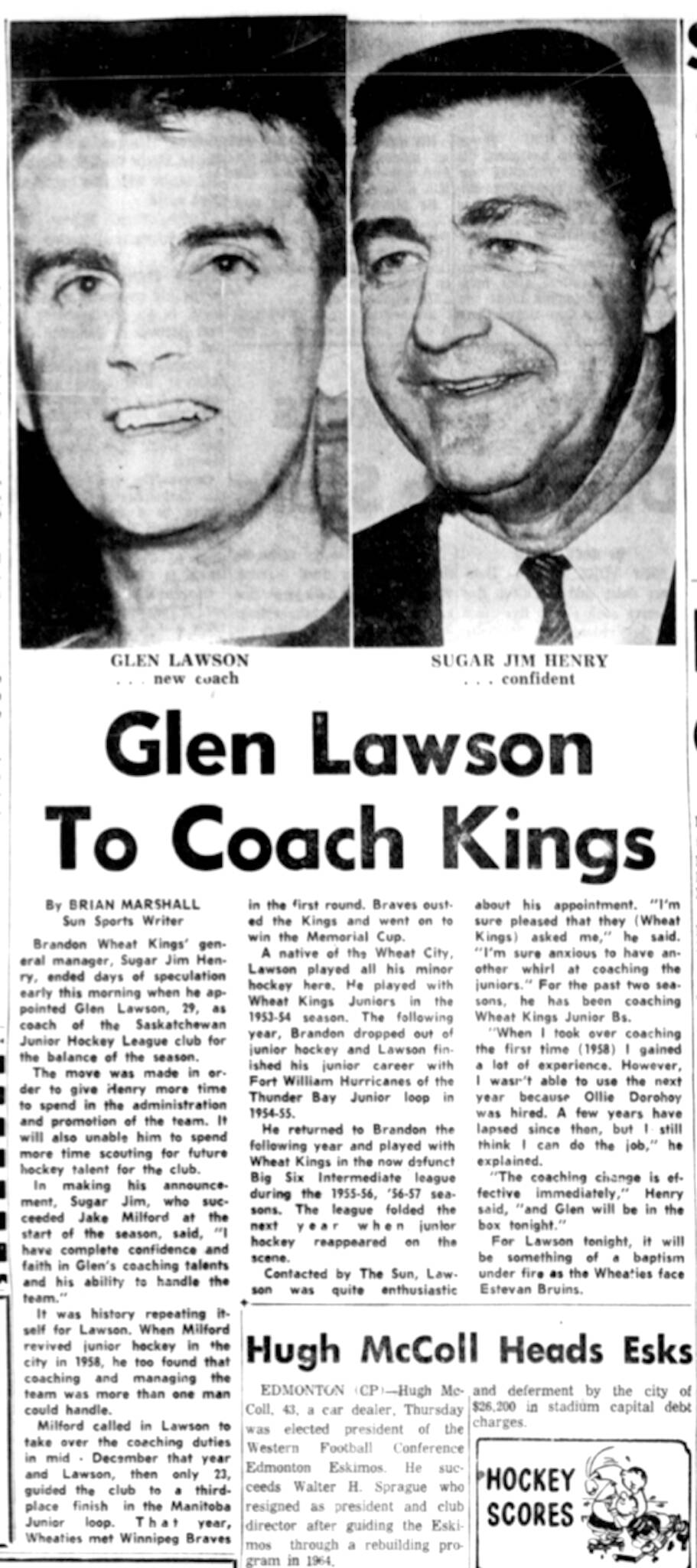
After posting a deficit of $599 that season on revenue of $18,332.46, the team executive offered the dual job back to Milford, in part to trim their salary costs, so Lawson was replaced as coach at the start of the 1959-60 season.
“He has all the potential as a good coach, and if he stays in the organization, he will probably return to the Wheat Kings within a couple of seasons,” Milford told The Brandon Sun.
Away from the rink, Lawson’s first job was with a construction company digging holes for foundations. He later moved to the City of Brandon and did survey work for sidewalks, curbs, gutters and sewers.
“Anybody in town who has their sewer running the wrong way, I probably put it in,” Lawson said with a smile.
Lawson enjoyed a lucrative side career on the ice. The former junior player was in demand by intermediate teams — they’re now referred to as senior — and built his first house with cash earned on skates just before they got married.
“I was a hockey-aholic, just plain and simple,” Lawson said. “I have to be very appreciative of what my wife did in raising the family. There were lots of times I was out on the road playing hockey. I played probably three, sometimes four nights a week. We got paid $150, $175 per game plus car expenses.
“I played in nearly every rural arena there is in Westman over the years.”
He married his wife, Eileen, 65 years ago. She was the son of a railroader who had moved to Brandon from Saskatchewan and had a job at Bing Juckes’ Drive-in Restaurant. The former National Hockey League star opened the restaurant up on First Street in 1950.
“Eileen was a car hop and I went there for a hamburger or whatever,” Lawson said. “That’s where I saw her, and somehow or other I got up enough courage to ask her if she would like a date and it went on from there.”
The couple had three children: Brad, Jeff and Jana.
But just like the mob, the Wheat Kings kept pulling Lawson back in. In his first year after Milford’s departure, general manager and head coach (Sugar) Jim Henry decided both jobs were too much. On Dec. 10, 1964, the team announced the 29-year-old Lawson was returning to the club, which was playing in the Saskatchewan Junior Hockey League at the time.
“I have complete confidence and faith in Glen’s coaching talents and his ability to handle the team,” Henry told the Sun’s Brian Marshall.
Lawson, who had been coaching the Wheat Kings Junior B team, was thrilled.
“I’m sure pleased that they asked me,” he said at the time. “When I took over coaching the first time, I gained a lot of experience.”
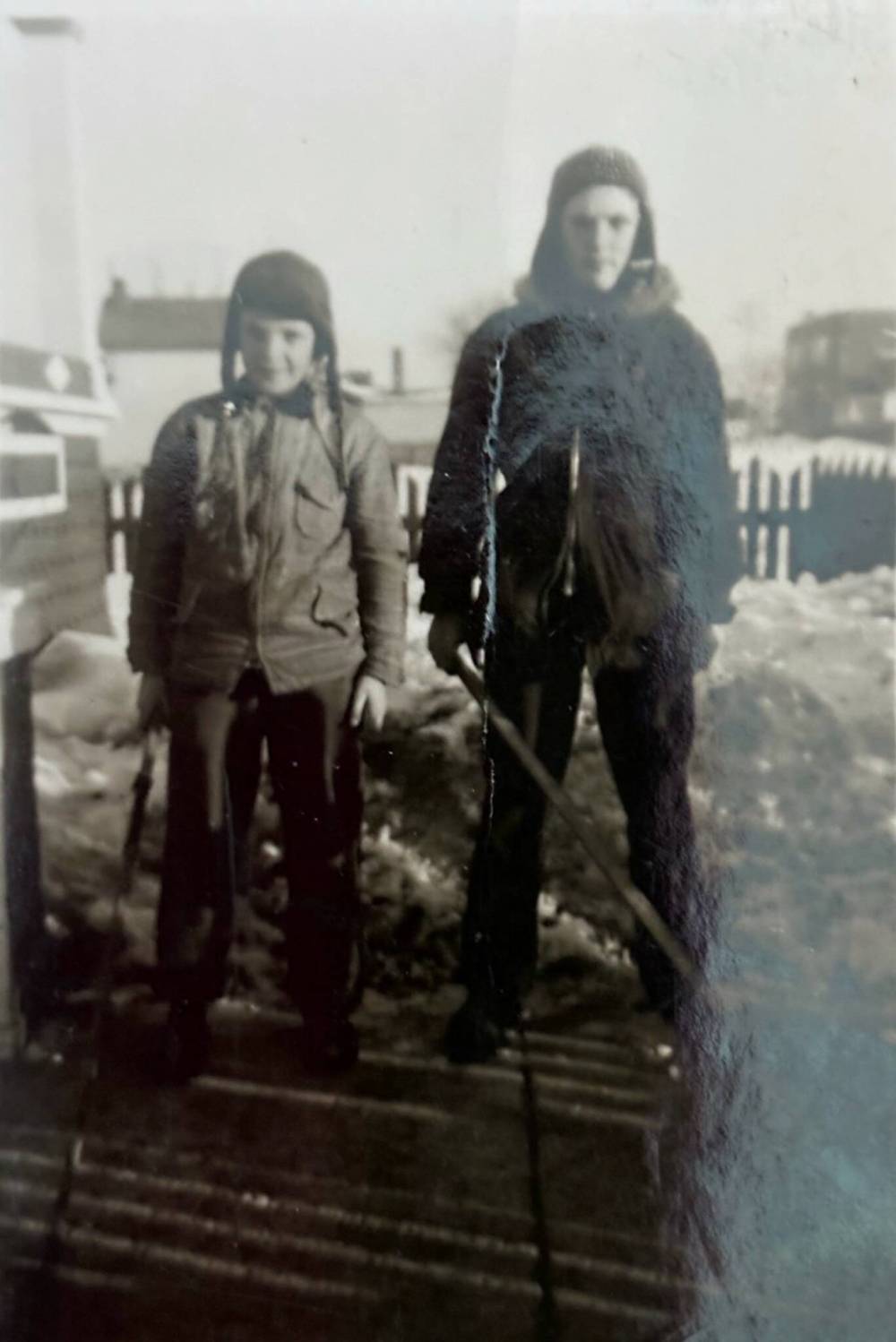
But just like the first time, it didn’t end well. The team went 30-21-5 and finished third, then were swept in the semifinals by the Weyburn Red Wings. In the off-season, the team once again decided having a GM and coach cost too much, and in June 1965 announced they had hired Eddie Dorohoy to replace both Lawson and Henry.
Lawson stayed involved with the club, and in June 1967 was part of a five-man steering committee named by the executive to explore the idea of moving from a publicly held club to private ownership. At the same time, the team was looking at joining a new league.
The Canadian Major Junior Hockey League was founded in the 1966-67 season with seven teams, the Regina Pats, Saskatoon Blades, Edmonton Oil Kings (who are now the Portland Winterhawks), Estevan Bruins (SJHL), Moose Jaw Canucks (folded), Weyburn Red Wings (SJHL) and Calgary Buffaloes (now the Tri-City Americans).
A year later, the newly renamed Western Canada Junior Hockey League had 11 teams, including the Wheat Kings, who had defected from the MJHL.
“Just for the quality of play,” Lawson said when asked about the reason for the move.
At the time, the Wheat Kings were playing their final seasons in the Wheat City Arena, which like the Keystone Centre, was a multi-use facility that also held agricultural events.
Lawson shakes his head and smiles when asked what he remembers about the old building.
“The rat-infested visitors dressing room,” Lawson said. “The floor in there was wood plank, and because of the Winter Fair being held there, there was a little bit of a rat problem. One incident that I recall is Moose Jaw was coming here to play and the dressing room was stinking because they had treated the rats.
“They were starting to get a little smelly. Other than that, it was a great place to play.”
Another story Lawson has told his family also involves the Moose Jaw Canucks visiting the Wheat City Arena. The teams were meeting in the playoffs but as Brandon warmed up, Moose Jaw stayed on the bus.
With just a few minutes until the start of the game, Lawson had the rink attendants lock all the back doors where the bus usually dropped off the players.
“They chained all the doors and here comes Moose Jaw’s bus in at five to 8,” Jeff Lawson said his father told him. “All the players were dressed and ready to go, they just had to put their skates on and get on the ice, so they were trying to play a little bit of a mind game.
“Now they had to walk all the way around the front of the arena to walk through the gauntlet of fans, who were jeering them.”
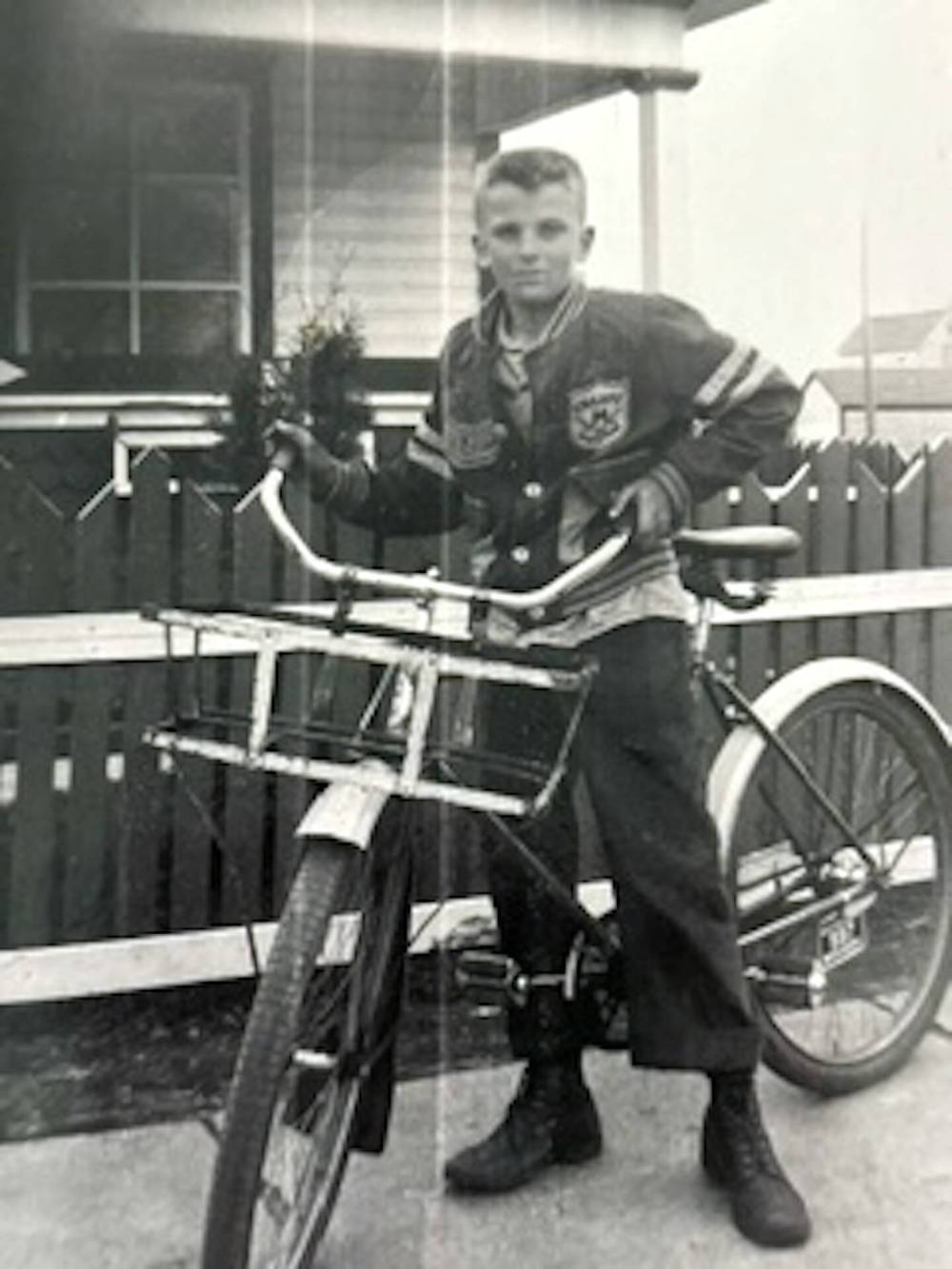
As the visitors put their skates on, Lawson found the Zamboni driver and told him if they got behind and started losing momentum, to watch for a signal from the bench. If the rink attendant saw it, his job was to go to the power box and turn the lights off.
Moose Jaw took the lead early in the third period and was coming on, so Lawson was furiously throwing the signal at the attendant. Mysteriously, the lights went out five minutes later and the rink was in total darkness.
“He said ‘I had to change the momentum somehow, I could feel us losing,’” Jeff Lawson said with a chuckle.
But times continued to be desperately tight for the team.
On June 13, 1967, the franchise formally applied to join the new league, and with the fate of the Wheat Kings hanging in the balance, a new group of operators took over. In an odd twist, the 10 members of the board of directors were responsible for covering losses but were unable to make any financial gain in the event of profits.
That August, Lawson was named the team’s governor on the WCJHL board. He quickly discovered the new league had a unique way of conducting its business.
“I became the director at the league level and attended all the meetings and that was an experience in itself,” Lawson said. “I can recall meetings in Saskatoon. I would leave Brandon at 5 in the morning to get there for a morning meeting and find out the big guys had the meeting the night before, so I had to go in the night before in order to get into the meetings.
“I thought I knew something about hockey but this is a different level.”
He also took over as general manager, stepping aside after the 1968-69 season when the team brought in Ron Maxwell as coach and GM.
In September 1971, the unworkable arrangement with the board covering shortfalls ended when the team lost more than $35,000 the previous season. Bruce Kent, Keith McCallum and Lawson stepped up to transform the Wheat Kings from a public, non-profit organization to a private company.
Less than three years later, the trio put the club up for sale and had a lucrative offer to move the team to Lethbridge they ignored. Instead, Kent bought out Lawson, McCallum and GM Rudy Pilous, who was also included in the plan.
Away from the rink, Lawson worked for his former coach Doug Clark, who had Clark’s Poultry. He wanted to buy Brandon Hatchery, but Clark needed someone to run it and added Lawson as a partner. Clark eventually wanted to get out of the business, so they sold Brandon Hatchery and Lawson acquired Clark’s Poultry a couple of years later in 1970.
The boys bought the business from their father in 1990. Jeff sold his portion of the business to Brad in 2007 and moved to Kelowna, and Brad sold the business to a multinational company in 2023.
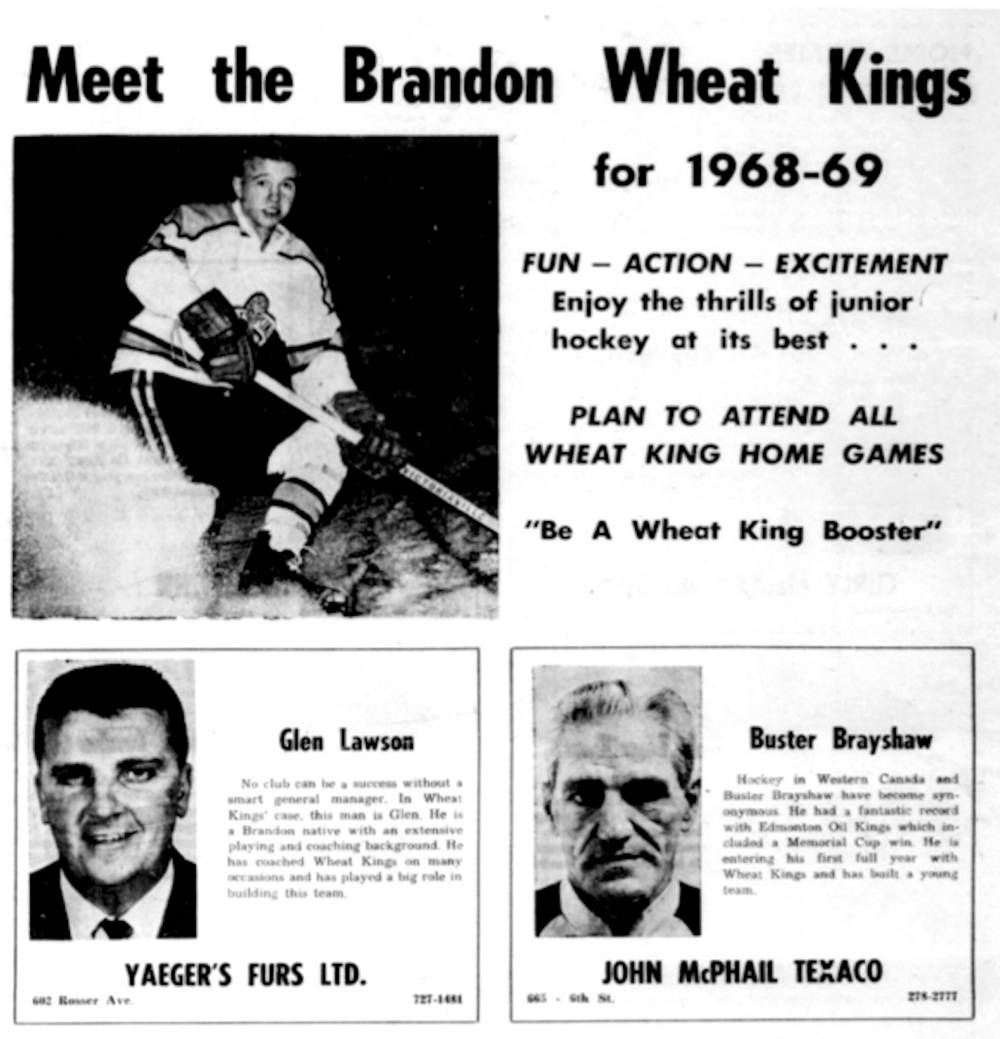
Jana, meanwhile, is the director of care at Valleyview Care Home. Her husband is Marty Zdan, who has singlehandedly brought minor lacrosse back to Brandon.
In 2011, Lawson was inducted into the Manitoba Hockey Hall of Fame as a builder.
“It was certainly a surprise,” Lawson said. “At the time, I wasn’t aware there was an award for just organizing things more than actually playing. It was really very nice.”
He also takes pride in the continued success of the Wheat Kings. Seventy years after he played with the team and more than 50 years since his last formal involvement with the club, he’s happy to see them still in Brandon and doing well.
“There are some pitfalls but it’s just amazing how long it’s been going,” Lawson said. “You can go to any province in your travels and if you said you were from Brandon, that person would say, ‘Oh, the Wheat Kings!’ It is that well known and has had a high standard.”
Lawson and his wife still live in Brandon, as do two of their three children. He said it was always home, and always will be.
“Brandon has treated our family as well as anybody could be treated,” Lawson said. “I’m proud to be a Brandonite.”
» Next week in The Brandon Sun, a story on Jeff Lawson and his time with the Wheat Kings.
» pbergson@brandonsun.com
» Twitter: @PerryBergson
